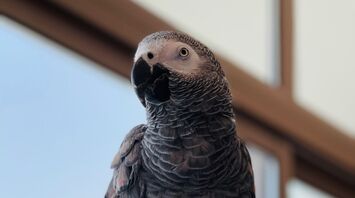English Wildlife Sanctuary on the East Coast Surprises Visitors with Its 'Loud' Parrots

Amid the scenic nature and vibrant birds of England, a particular wildlife sanctuary on the country's eastern coast has a standout group of residents. At first glance, this place appears to be a peaceful haven for observing animals, but as visitors approach, they’re greeted by sounds they might not expect from feathered friends. Five African grey parrots, housed here, have learned to swear in a way that leaves no visitor indifferent, and their humorous "repertoire" has become one of the main reasons tourists flock to this sanctuary.
These parrots, who once lived in private homes, were brought to the sanctuary under the care of its director, Steve, during the pandemic. According to Steve, the birds already knew how to utter a variety of inappropriate phrases. He attempted to correct their behavior by placing these "swearers" among other, more polite parrots. The plan was for the newcomers to forget the foul language when surrounded by regular sounds like car alarms or phone rings. However, as experience shows, this plan hasn’t worked out quite as expected: the parrots continue to entertain visitors with their unusual behavior.
For the sanctuary’s staff, this case has been amusing but a bit puzzling. Tourists literally line up to hear the unusual phrases generously shared by these feathery pranksters. Some expressions may sound especially blunt, but according to staff, most visitors respond with smiles and surprise, and some even come specifically to hear the infamous "swearing parrots." Some guests try not to take offense at the sharp words, while others play along, laughing right along with the parrots.
The wildlife sanctuary on England's east coast has become a tourist hotspot thanks to its unconventional residents. While African grey parrots are typically known for their intelligence and exceptional learning abilities, in this case, they show that nature can offer unexpected surprises. Visitor interest continues to grow, and the staff hopes that the "fame" of their feathered friends will attract even more guests eager to enjoy a humorous side of the natural world.



















